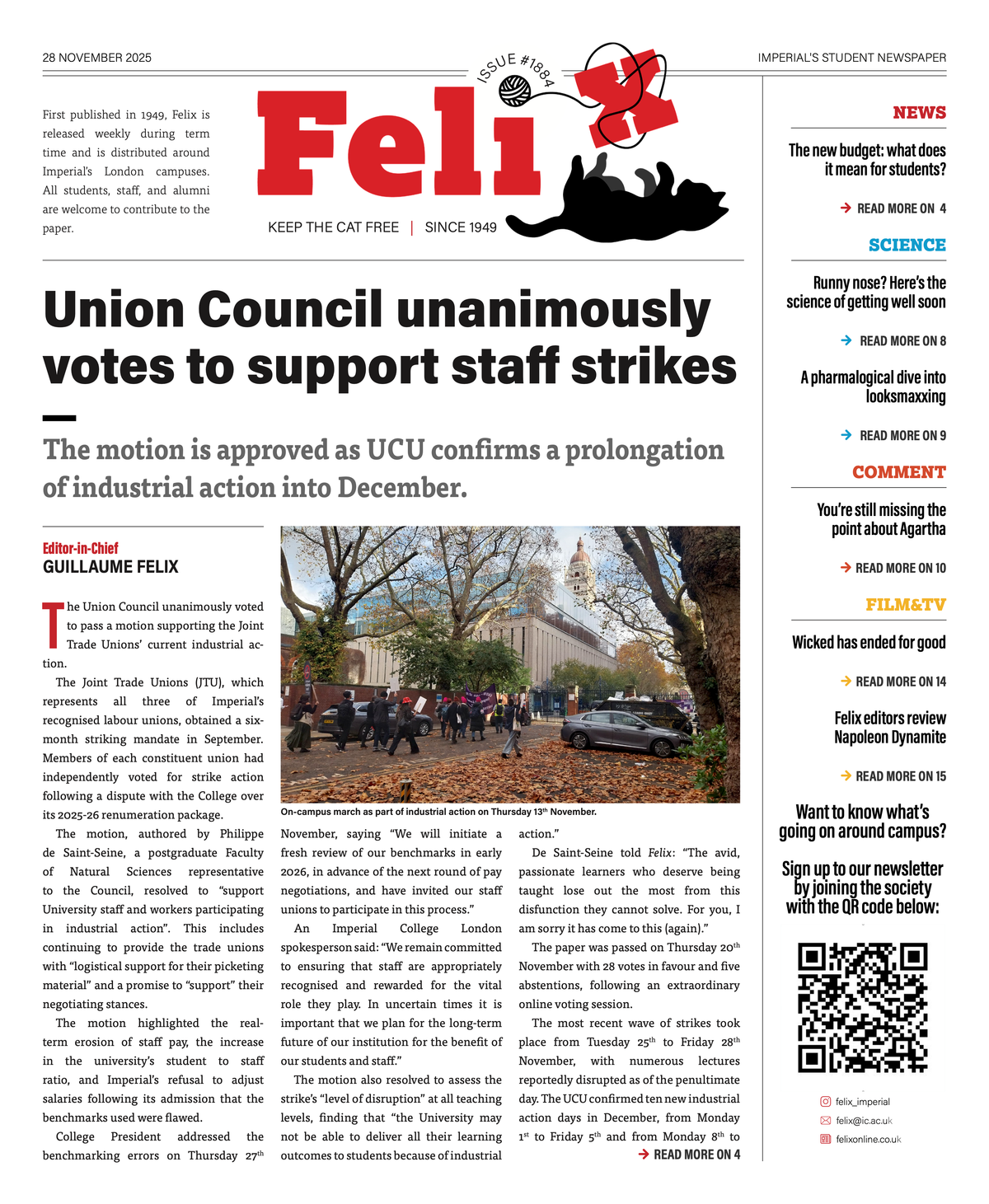You’re still missing the point about Agartha
A response to the criticism surrounding Felix’s investigation of the Agarthan Society.
Last week, members of various Agarthan Societies erupted in outrage. Within hours of Felix publishing an article examining the groups’ fixation on antisemitic and Nazi-adjacent mythology, the comments section filled with an almost coordinated litany of dismissals.
One person commented, “Fun police.” Another insisted, “Imperial doesn’t know how to take a joke.” Some Instagram accounts chimed in by criticising the article’s authors or scrutinising “brain rot memes,” and claimed that not all Agarthan accounts post problematic content.
In a way, this defensiveness is both fitting and predictable for the Agarthan Society. They present their Society as a space for surreal humour and harmless absurdity. Yet, when scrutinised, their first instinct is to retreat behind exculpatory devices, claiming that everything is “just a joke.”
This reflex is a well-documented strategy in digital subculture. Over the past decade, far-right rhetoric has migrated through humour, not via overt ideological declaration but through layers of irony and plausible deniability. And when challenged, those responsible for spreading it deflect by insisting that it is merely humour. Agartha is simply the campus-scale expression of this much broader trend. It is a good example of how bigotry can be laundered through satire or how xenophobia can hidden within meme formats.
What the Agarthan Society either fails to understand – or pretends not to – is that the form of a joke does not absolve its function. A student society that repeatedly circulates material grounded in some of the twentieth century’s most toxic mythologies cannot reasonably feign surprise when others are offended by its lineage. To dismiss these critiques as humourless overreactions is to confess that you have not bothered to engage with the historical and political frameworks your own memes rely on.
The central issue, however, is that even if the intent is not explicitly hateful, the infrastructure of the society or Instagram page creates a platform where harmful rhetoric can be expressed, validated, and amplified. And before long, the distinction between irony and endorsement fades. When your jokes consistently require footnotes explaining that they are “not actually racist,” it is worth considering why that clarification is ever necessary.
And so, holding Imperial’s Agarthan Society to scrutiny does not constitute censorship. It is the natural and necessary consequence of occupying communal space. If you want to operate under a banner of one of the world’s leading universities, you must accept that your output can and will be examined.
The Agarthan Society may insist that its content is benign and unserious, but the cultural impact of the ideas its followers circulate is not. The point was never that students must not joke. It was those jokes, like any other cultural artefact, carry histories, connotations and consequences. Insisting otherwise is nothing but wilful ignorance.









